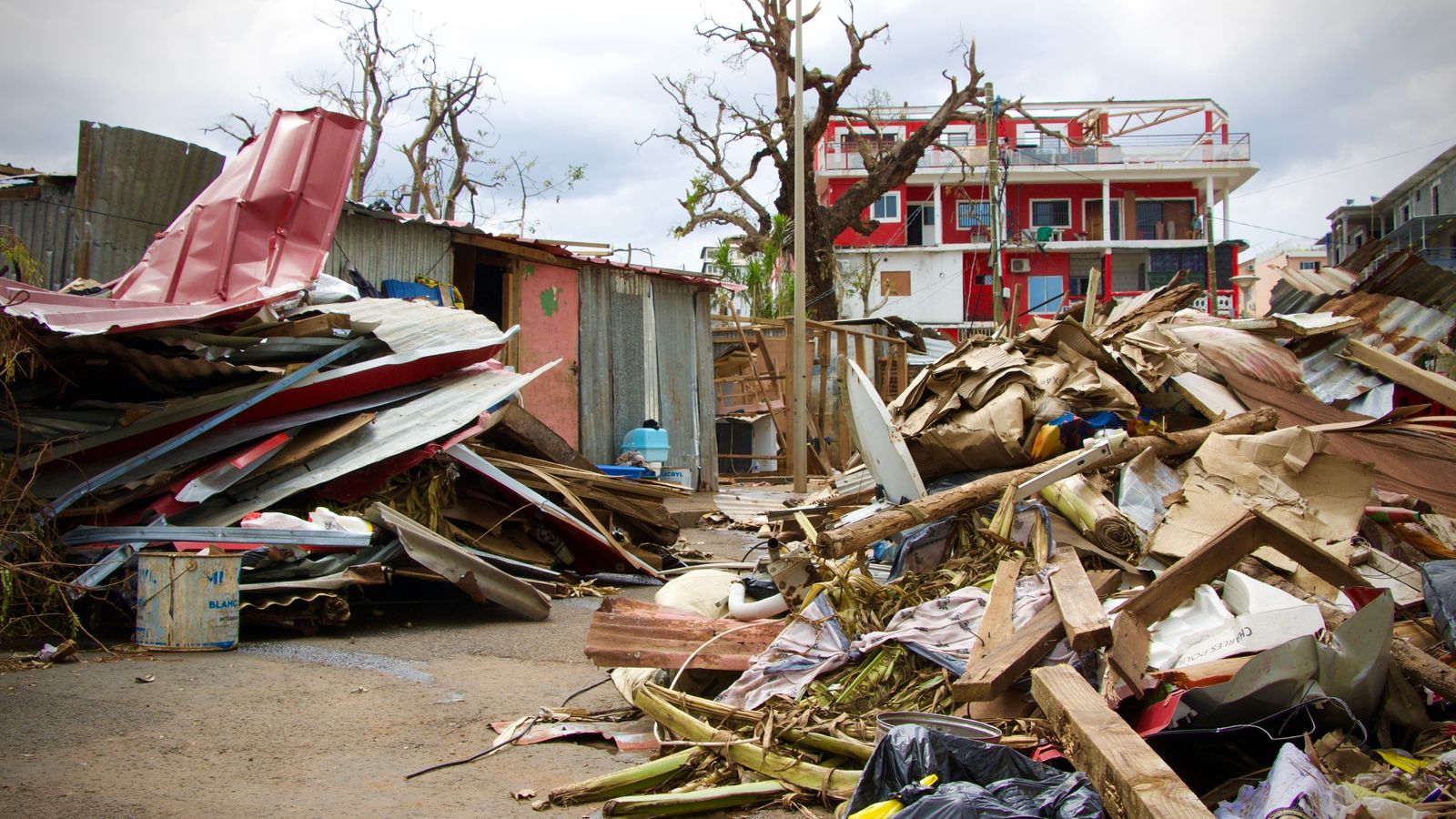For days the world has been told how Cyclone Chido has laid waste to the small Indian Ocean island of Mayotte. But few can truly understand just how devastating the most powerful cyclone to hit this region has been.
The few pictures leaving Mayotte struggle to show the true scale of the crisis.
The island is remote, cut off completely from the rest of the region except for the French military planes that bring in emergency aid.
Ships leaving Reunion, France’s other Indian Ocean territory, carrying desperately needed aid, take up to four days to reach Mayotte’s ports.
It is extremely difficult for journalists and film crews to get here. The main airport on the smaller island of Petit Terre is still closed.
Passengers who do manage to land there face long ferry delays to cross over to the main island Grand Terre and the island’s capital Mamoudzou.
Power is only partially restored. Petrol is hard to come by for those lucky enough to snag one of the few working hire cars. Phone reception is patchy at best. There is hardly any accommodation available.
Every street in the capital has suffered.
Please use Chrome browser for a more accessible video player

3:09
Families scavenge through mounds of rubble and timber picking up whatever they can to salvage in the aftermath of a devastating weather event.
Power lines dangle precariously from cable poles snapped in half by the ferocity of the wind. Tree branches ripped from their trunks lie on the roads making many impassable.
Everywhere, sheets of corrugated iron peeled from the roofs of houses lie where they were tossed by Sunday’s deadly storm.
Read more: Relative ‘desperate for news’ from cyclone-hit island
Wretched existence after cyclone
The cyclone spared little.
Families scavenge through the mounds of rubble and timber picking up whatever they can to salvage. At night they gather around pots burning on open fires in the shattered wooden framework of where their homes stood only days ago.
It is a wretched existence.
Entire communities have been blown away
But the voices of anguish and anger have not been heard.
That is because the people most affected, whose entire communities have been blown away, are the poorest and most marginalised.
They are the ones who fear and distrust authority. The majority are undocumented migrants from the Comoros Islands.
They turn away from the few TV cameras pointed at them and they will not go to officials for help when that aid does finally arrive.
Instead they suffer in silence, rebuilding their homes from the scraps and debris they have been reduced to.




















Post comments (0)